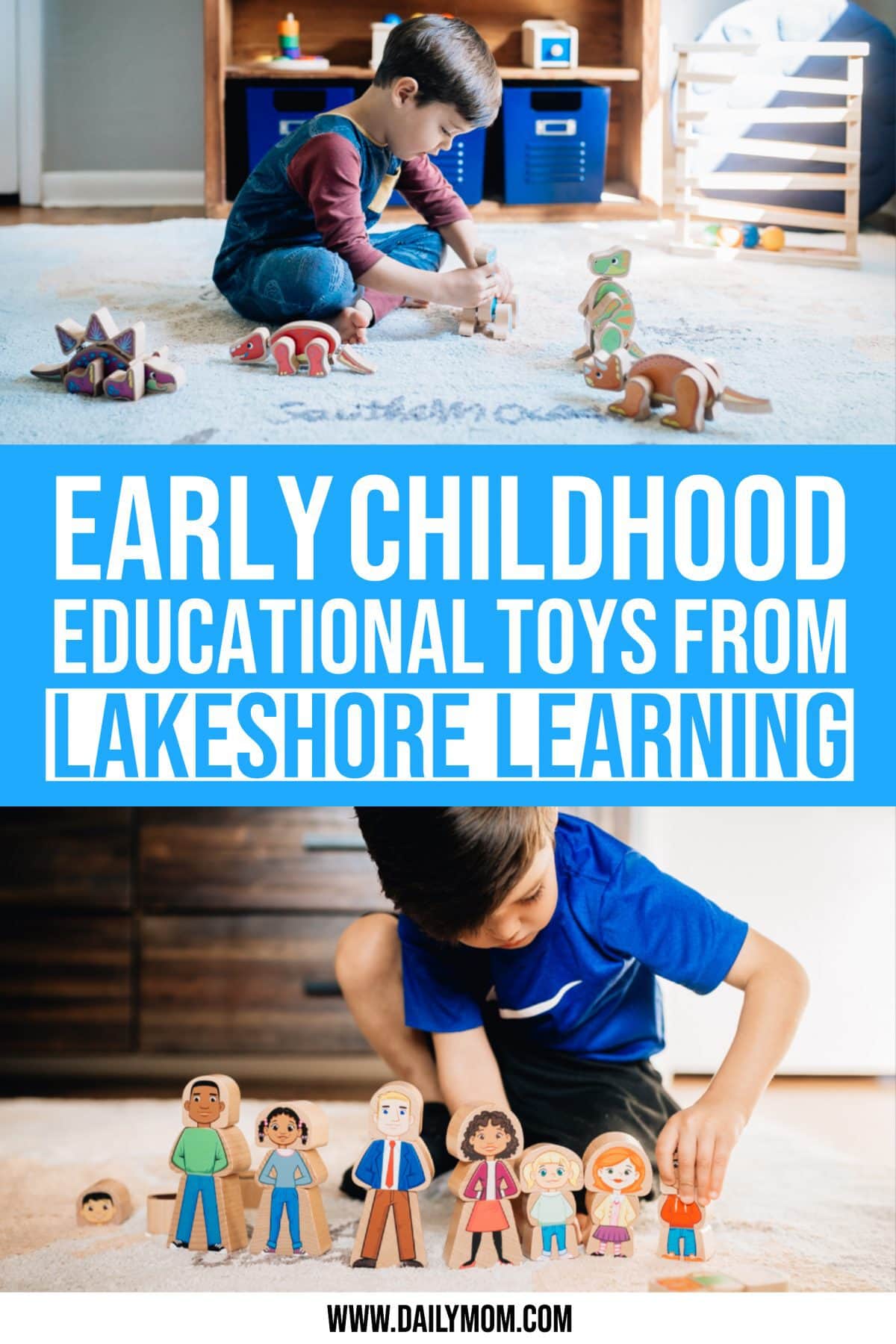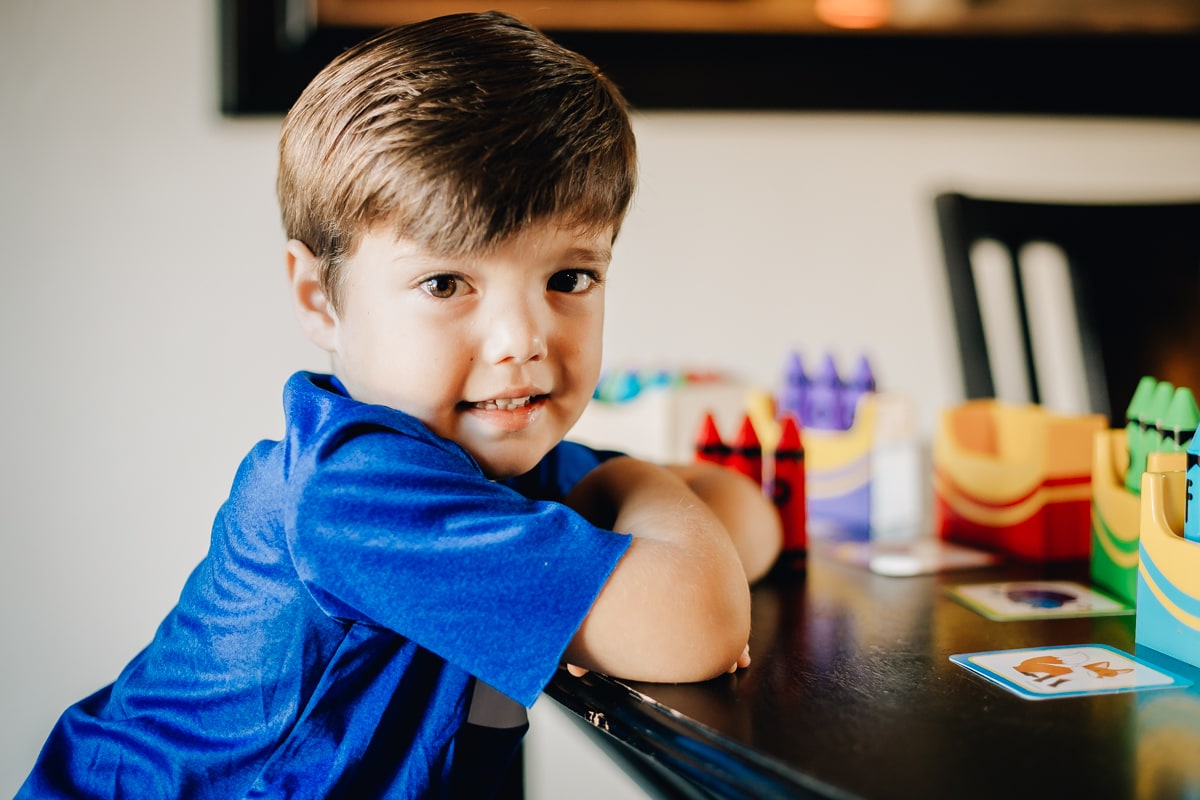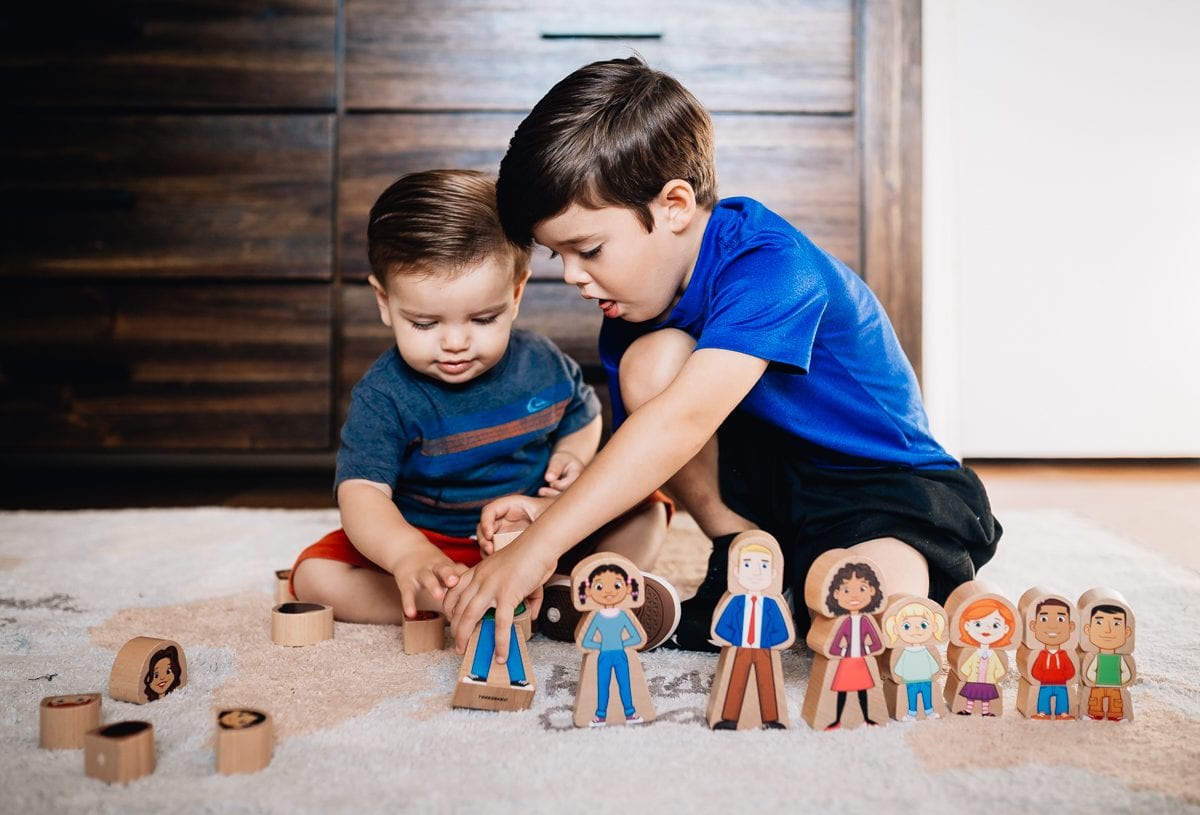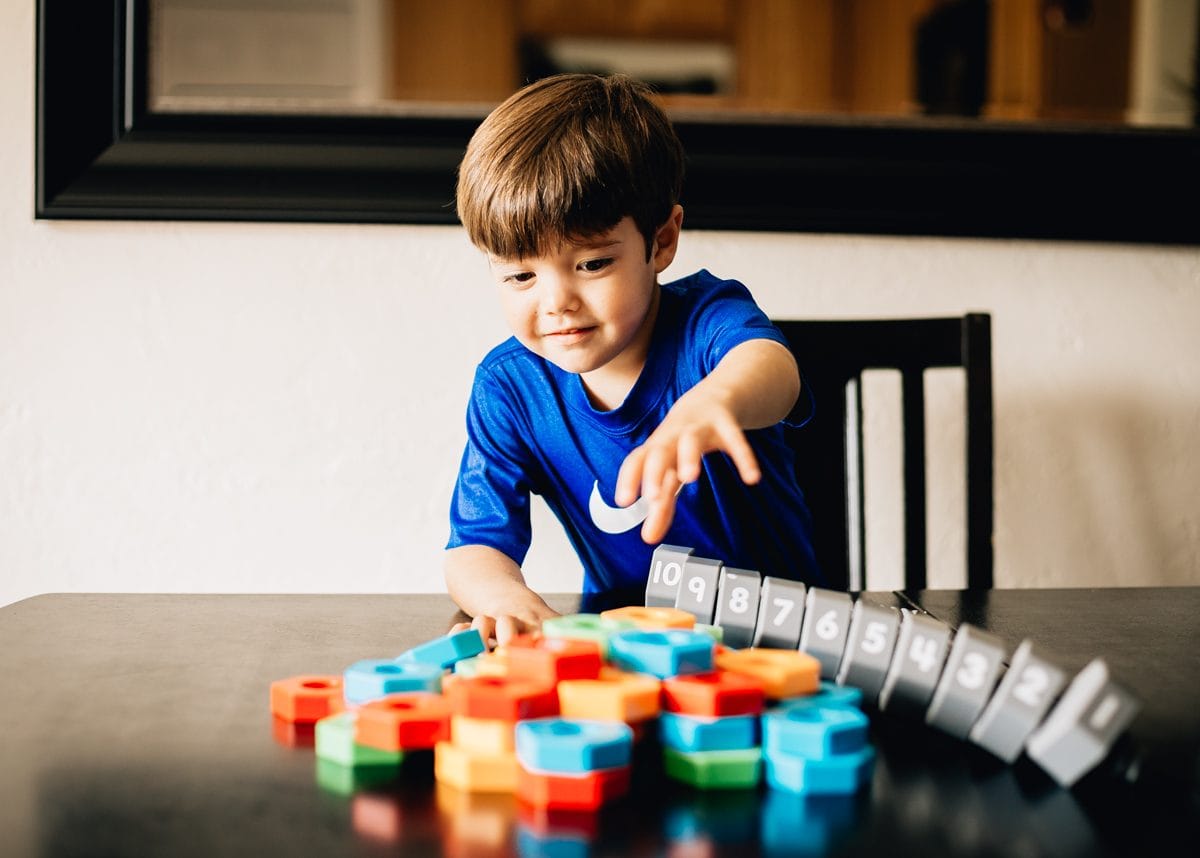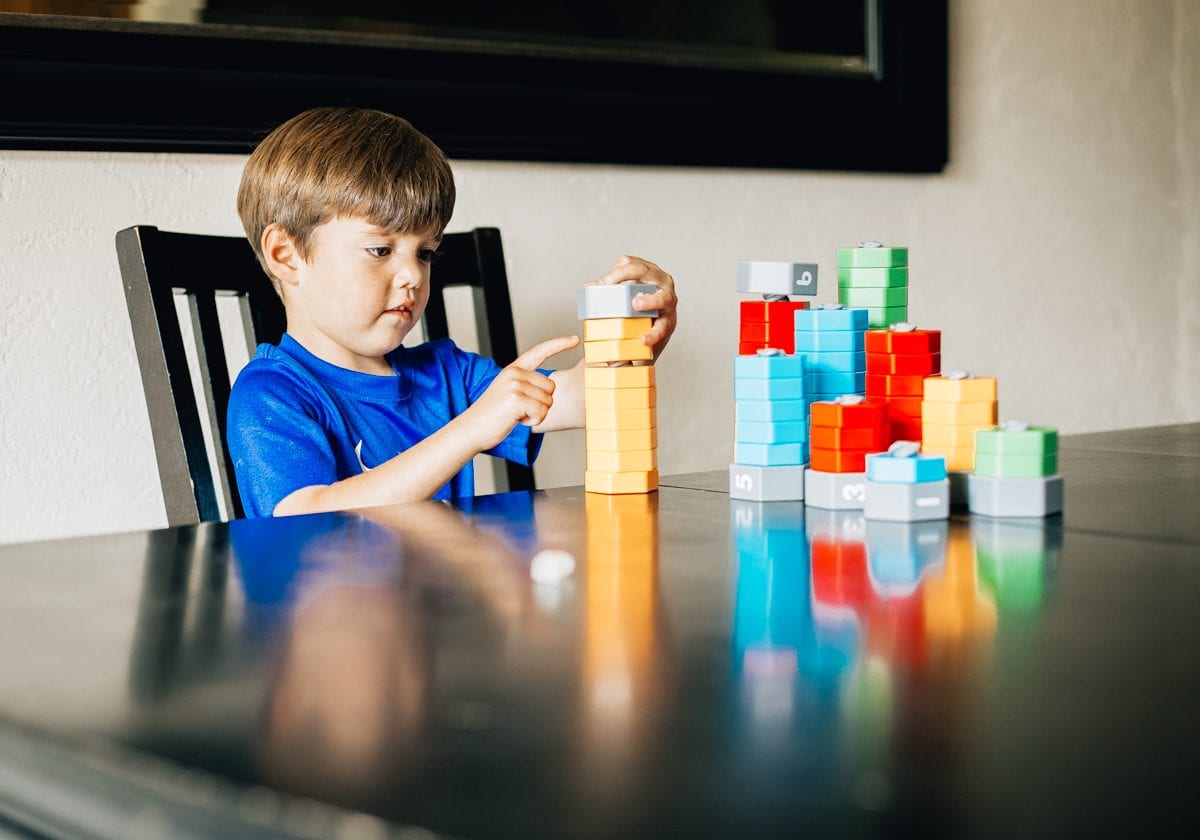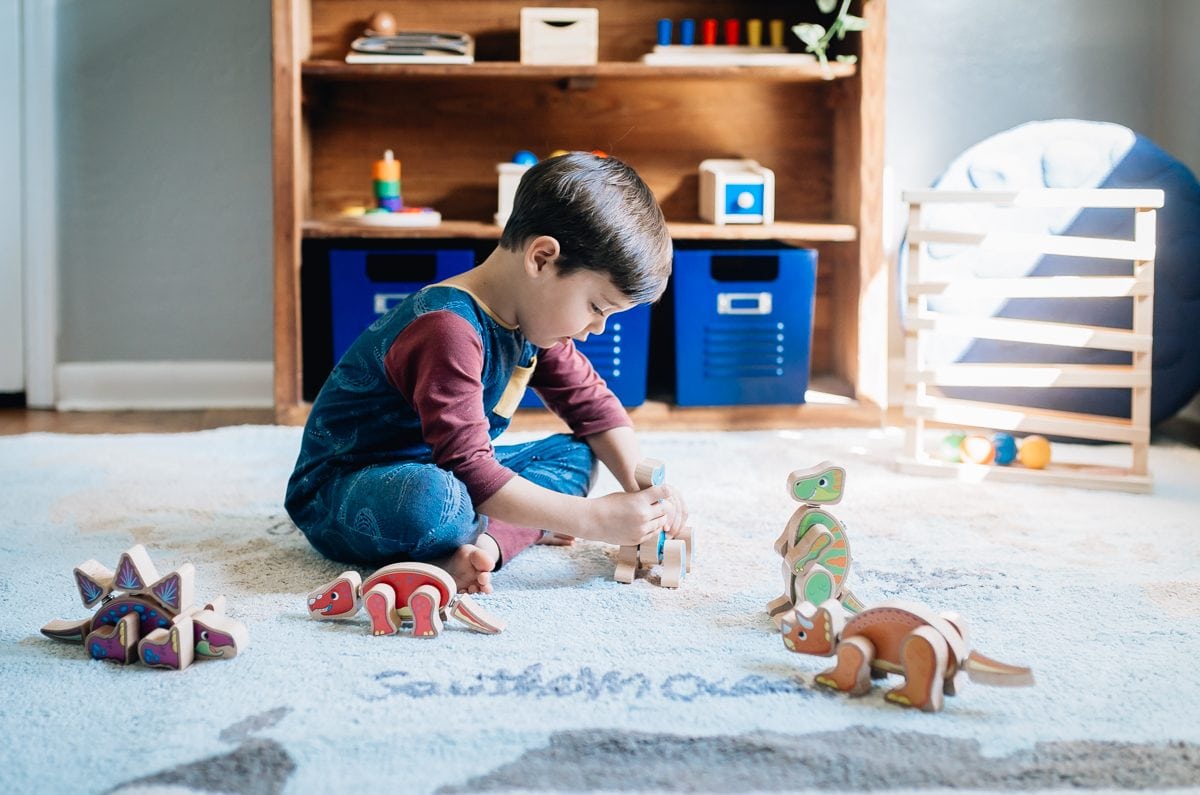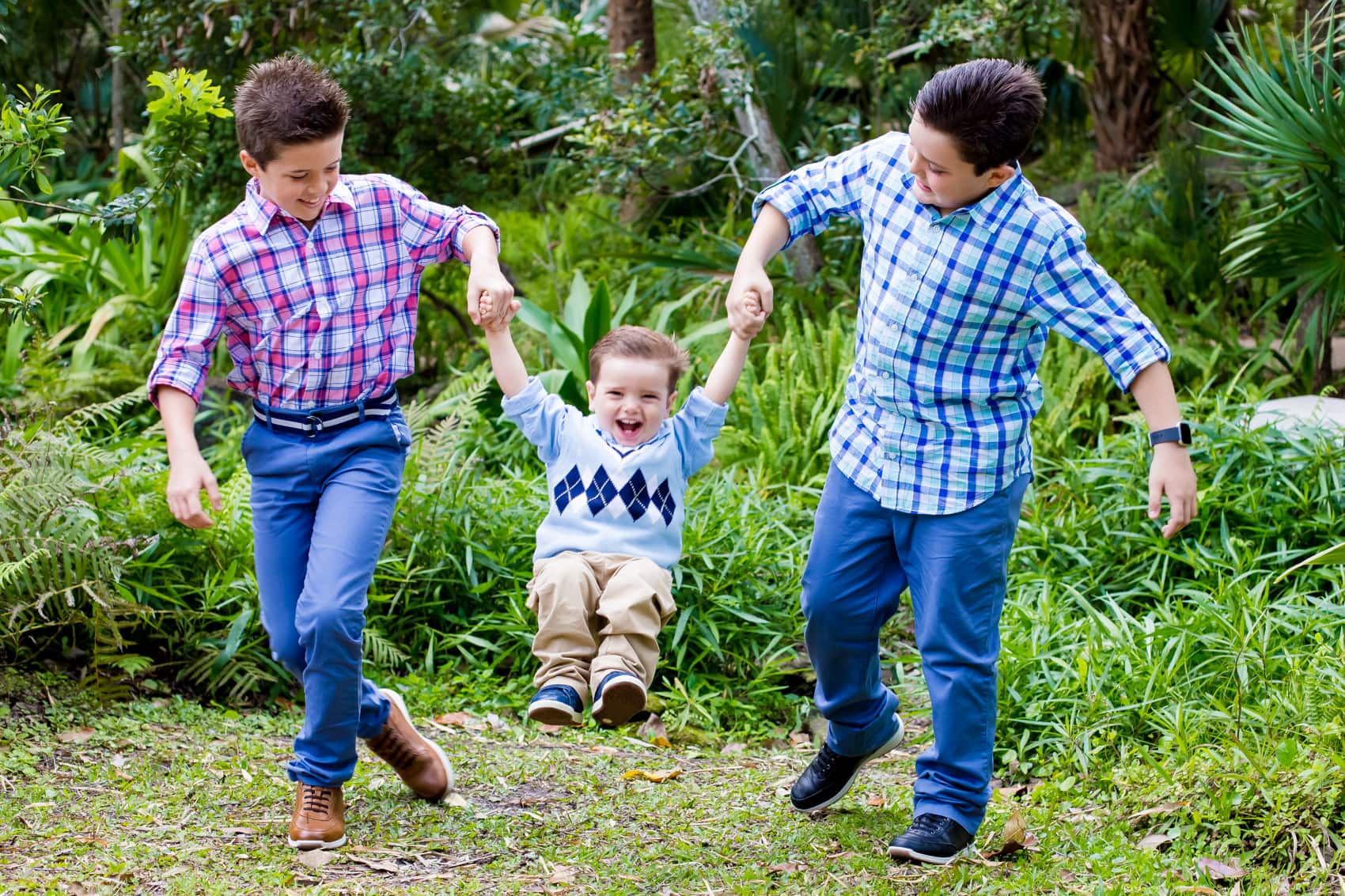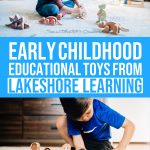April showers bring May flowers…While the much anticipated spring and summer seasons means warm breezes and rising temperatures, it also means rainy days are upon us. With just a few short weeks until summer, the sun is shining and long, hot days are also just around the corner. Getting our children up and active outdoors after the cold and dreary winter days is the top priority of parents all around, but having an array of exciting and educational toys for toddlers and children is also a must.
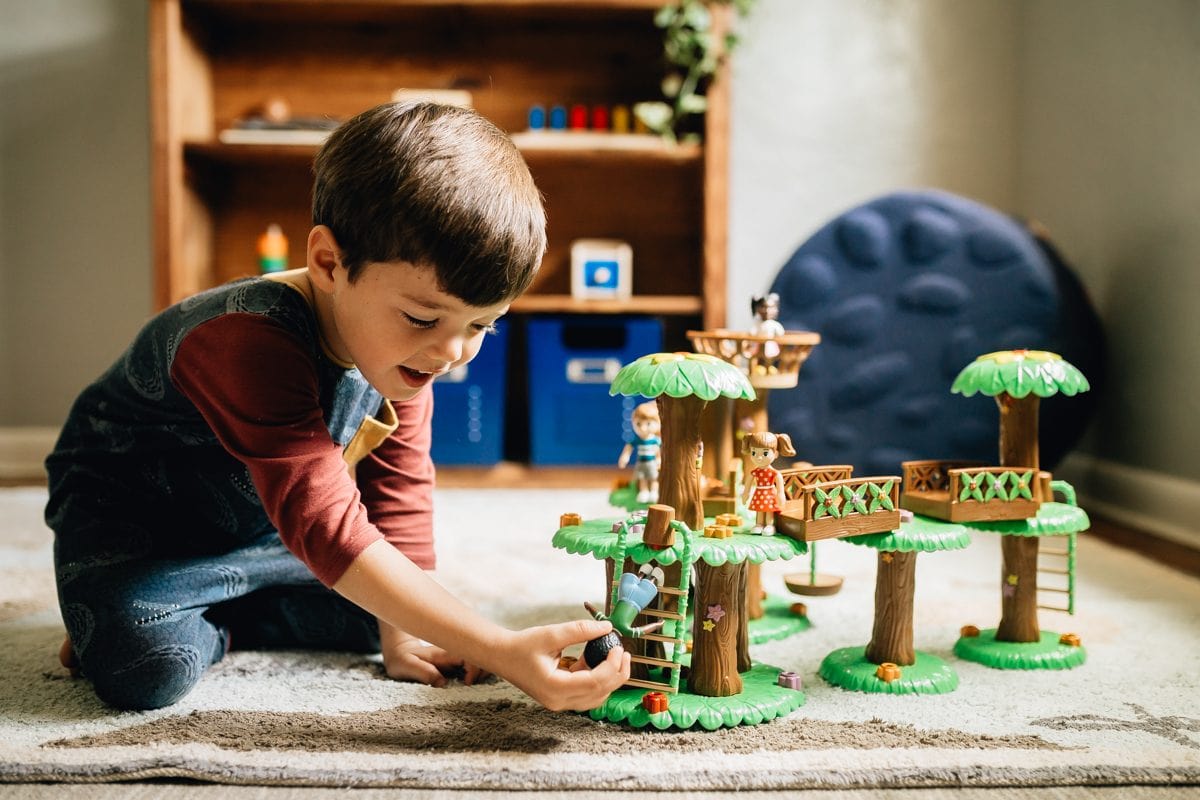
This season Lakeshore Learning has a host of new, educational toys for toddlers and young children sure to keep little minds engaged and little hands occupied for hours on end. Put away the plastic toys in the playroom and instead line their shelves with fun-filled lessons that will not only keep them playing but will also keep them learning all year long. Jump start your child’s early childhood education this season with fun and engaging activities that will stimulate their minds and keep their hands busy on those days indoors.
What is Early Childhood Education?
Early Childhood is defined by the National Association for the Education of Young Children as the years before a child’s 8th birthday. While most early childhood programs are designed for those under 5 years of age, all this means is that even when children enter the K-2 grades they are still grouped into this category.
Early childhood, birth through age 8, is known to be the most rapid period of growth and development in a child’s life. Their brain is developing more rapidly during this period than at any other time in life making it a crucial time for important educational experiences. These are the foundational years during which children’s language, social and emotion skills, physical attributes, cognitive abilities, self-esteem, perception of the world and moral outlook are established.
Read More: Finding the Best Learning Environment for Your Child
Simply put, early childhood education includes activities and experiences designed to effect positive developmental change in children during their early years. Early childhood education programs are generally high quality preschool programs implemented with the purpose of improving children’s educational performance now and in the future.
Benefits of Early Childhood Education
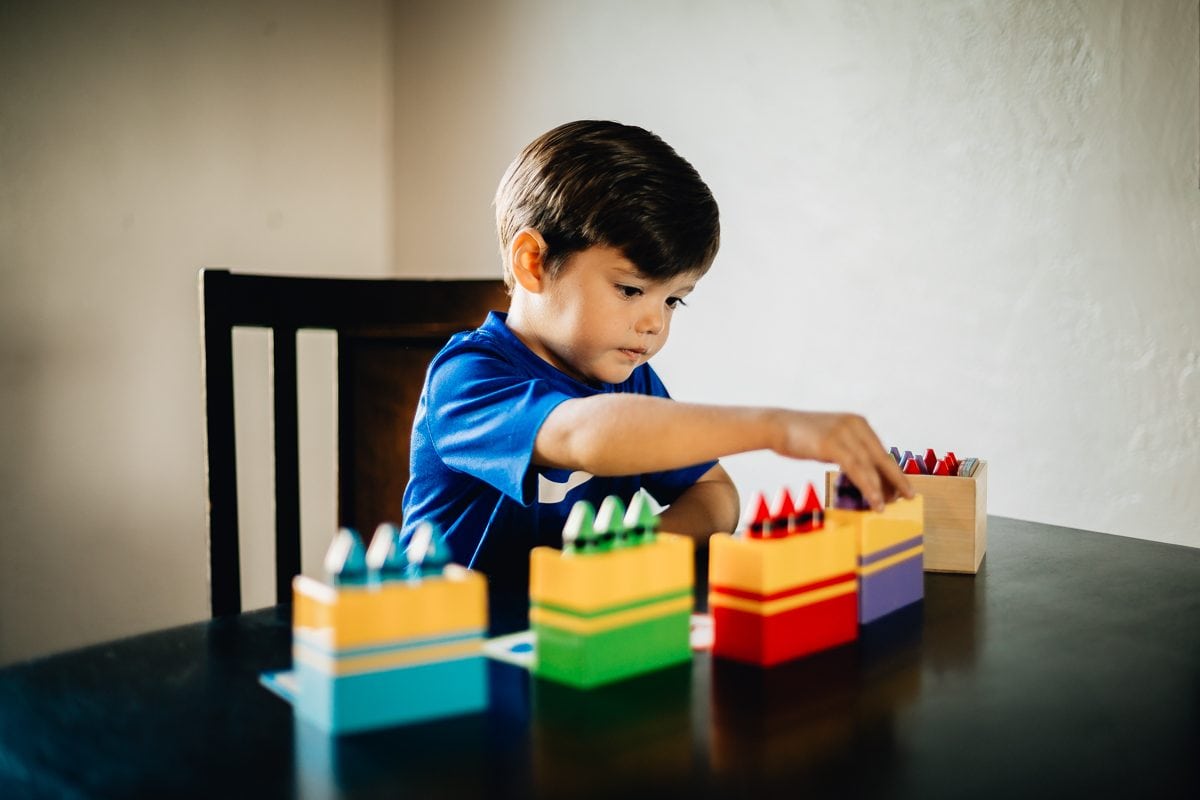
Early childhood education lays the foundation for a child’s reading, writing, math, science and social/emotional development. Frequently learning through play is the norm, as it should be, since it has been demonstrated time and again that children in their formative years learn more efficiently and effectively through peer-to-peer interactions in a structured, yet child-driven environment.
- Play allows children to use their creativity and imagination while learning academic and social/emotional concepts increasing their readiness to learn, improving behavior, and developing problem solving skills.
- Play allows children to create their own space where they can problem-solve, conquer their fears, and master social and academic concepts within safe boundaries.
- Play allows children to develop skills that increase their competence and self-confidence creating more self-controlled individuals assured of their own self worth and value.
- Play, while adult-supervised, but child-driven presents an environment where children can work alone or in groups, learn to share, negotiate, self-advocate and practice conflict resolution.
Children in play-centered educational environments practice decision-making skills daily becoming more self-confident and responsible. These children learn and practice intrinsic or self-motivation regularly and discover their own interests making them more receptive to academic learning throughout life.
Academic Concepts of Early Childhood Education
While there are a variety of curriculums and educational programs out there the majority are centered on teaching similar core concepts for current and future academic growth. These include:
- learning letters of the alphabet
- learning letter and word sounds to facilitate reading
- learning the gross and fine motor skills that lead to early writing skills
- creative development to include imaginative play
- increased vocabulary skills; learning new words and appropriate use
- learning numbers and early math skills to include counting, patterning, and sorting
- learning early scientific concepts which often include lessons in biology, chemistry, and anatomy
- within some curriculums learning social studies to include geography, history, and culture
Read More: What Teachers Want Your Child to Know Before Kindergarten
Deciding which type of preschool program or philosophy is right for your child, whether in or outside of the home, is a matter or personal preference. The most common types of preschool programs you will encounter include:
- Montessori
- Waldorf
- Reggio Emilia
- Project Based
- High/Scope
- Bank Street
- Religious
- Community
- Cooperative
- Developmentally appropriate/play based
- Language Immersion
Educational Toys for Toddlers & Children to Promote Learning
Lakeshore Learning prides itself on developing activities and toys that are both fun and educational for toddlers and young children. Since play is the foundation of their education, why not make their playtime worthwhile? From letters to numbers, imaginative play to early science education, Lakeshore’s new spring and summer educational toys are sure to keep your child actively engaged while educating them all year long. Here are a few of our favorite new educational toys for toddlers and children from Lakeshore Learning we know you’ll love this season.
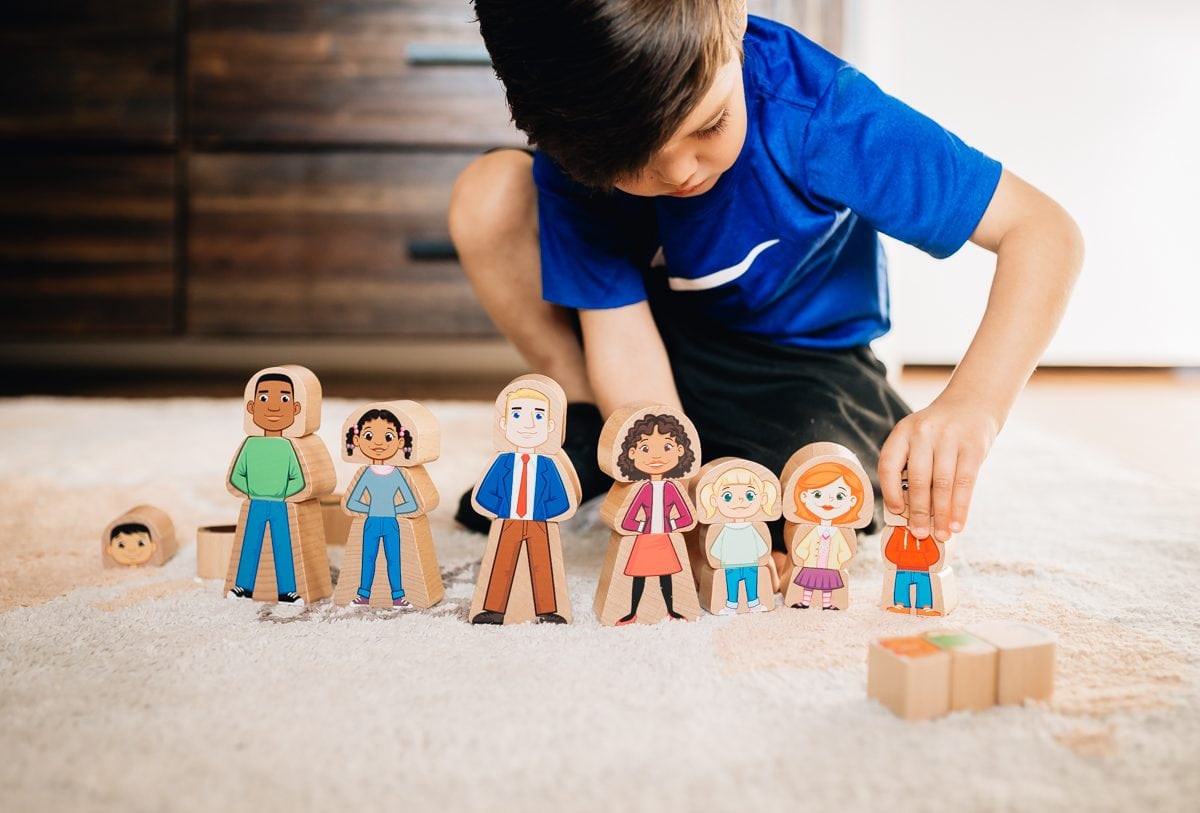
Mix and Match Magnetic Families: these manipulative, illustrated blocks develop eye-hand coordination as children mix and match pieces, creating their own modern day play families. Strong magnetics ensure superior building quality making sure children aren’t easily frustrated while at play.
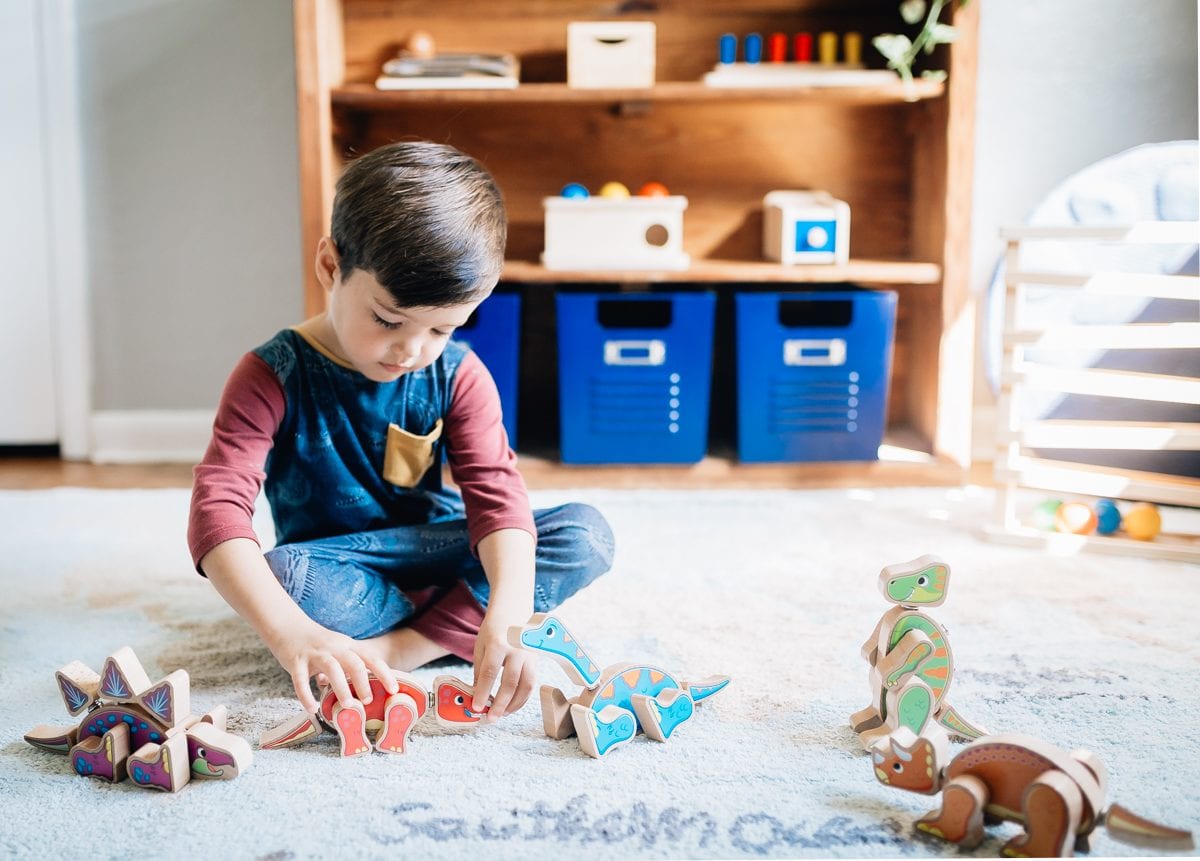
Snap Dinos: these two-sided, illustrated blocks feature bright and colorful dinosaur features that can be mixed and matched, allowing your child’s imagination to run wild. Create 5 dinosaurs by snapping together the heads, tails, legs, and spikes, or mix them up to craft your own crazy prehistoric creatures.
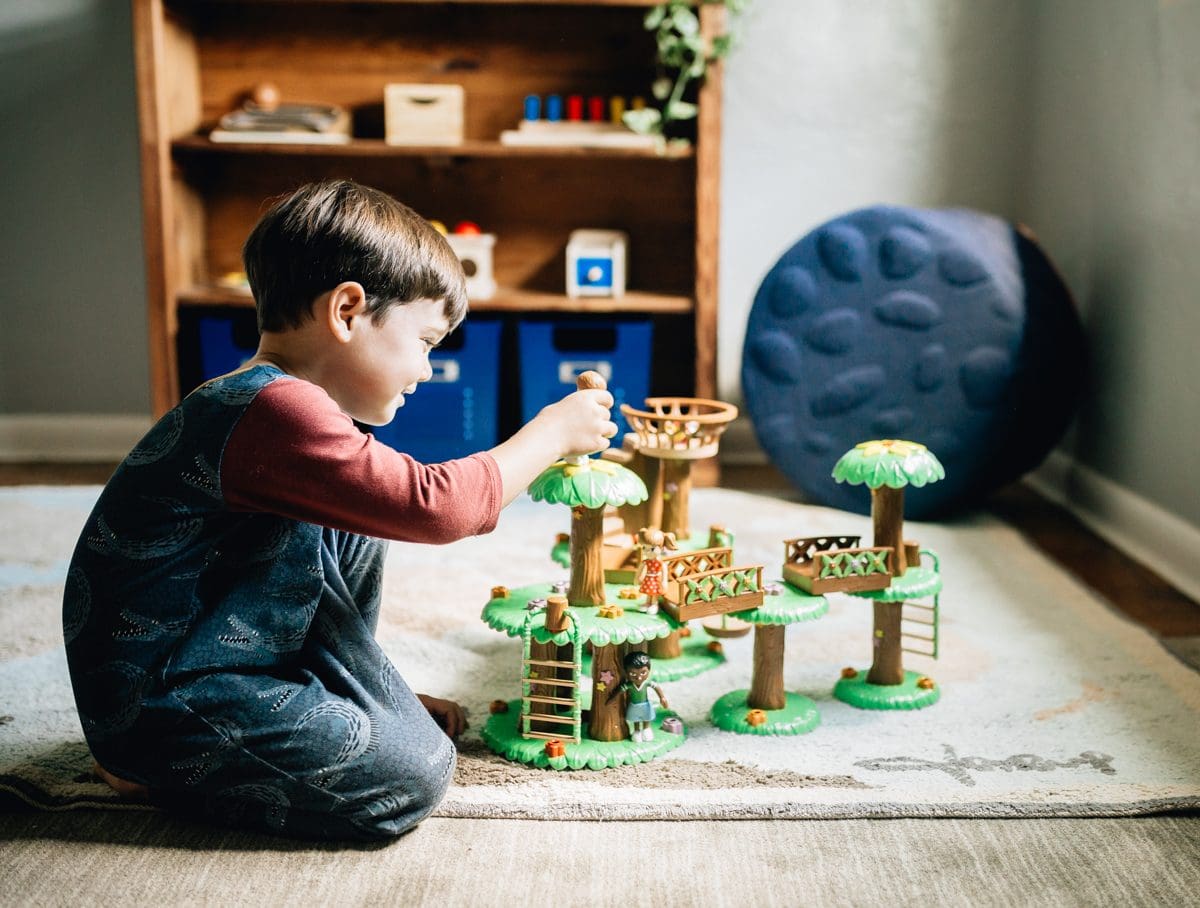
Treehouse Imagination Builders and the Pose and Play Kids: Let your child’s imagination run wild this spring with their very own treehouse building set. Full of vibrant colors, realistic textures, and easy, snap together pieces, this treehouse will inspire hours of imaginative play for your early learner.With ladders, canopies, bridges and more, boys and girls alike will love this engaging set. Pair with the Pose and Play Kids for a fun and inspiring experience.
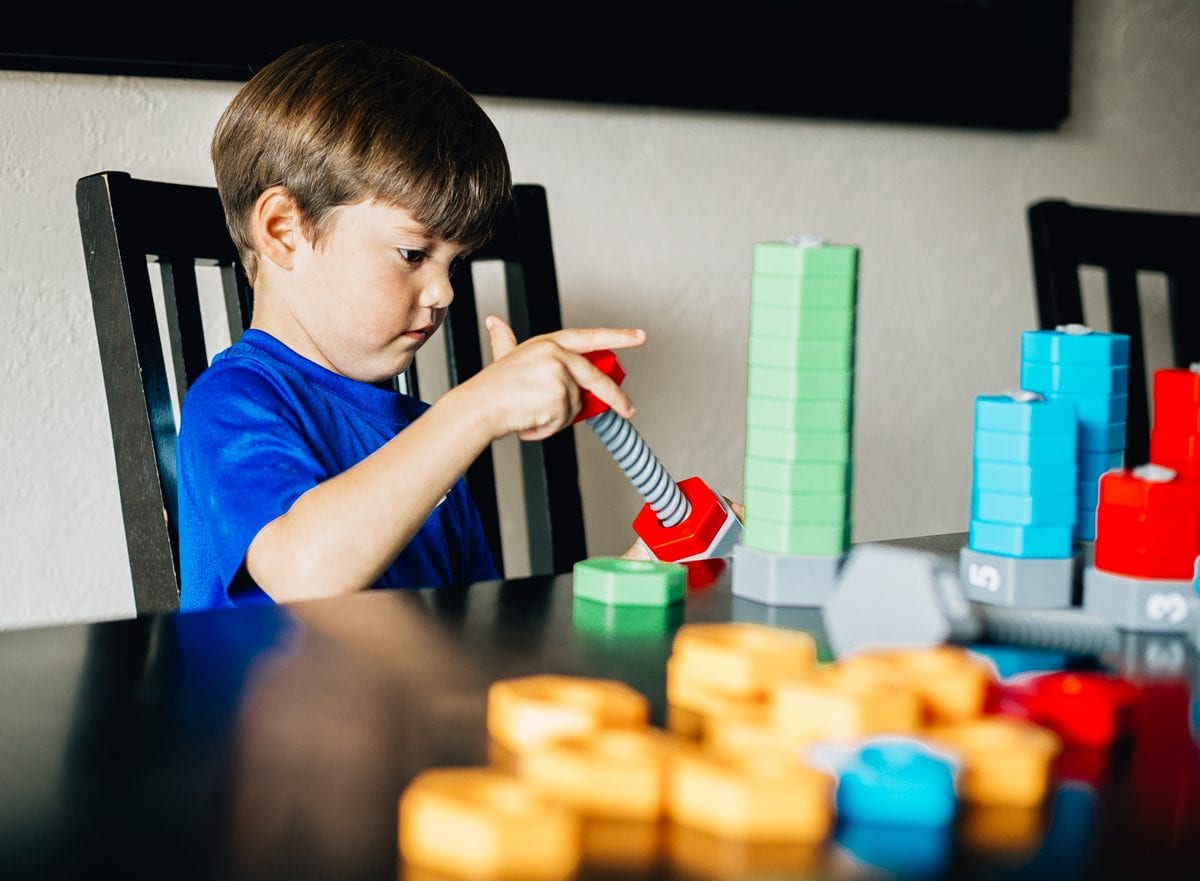
Nuts About Math! – Complete Set: Round out your child’s learning this summer with the Nuts About Math! – Complete Set. These colorful nuts and bolts develop early math skills with the added bonus of honing those fine motor skills as well. These nuts and bolts allow kids to match numbers to quantities through 10, create patterns and sort by color, all skills that lay the foundation for future academic development in mathematics.
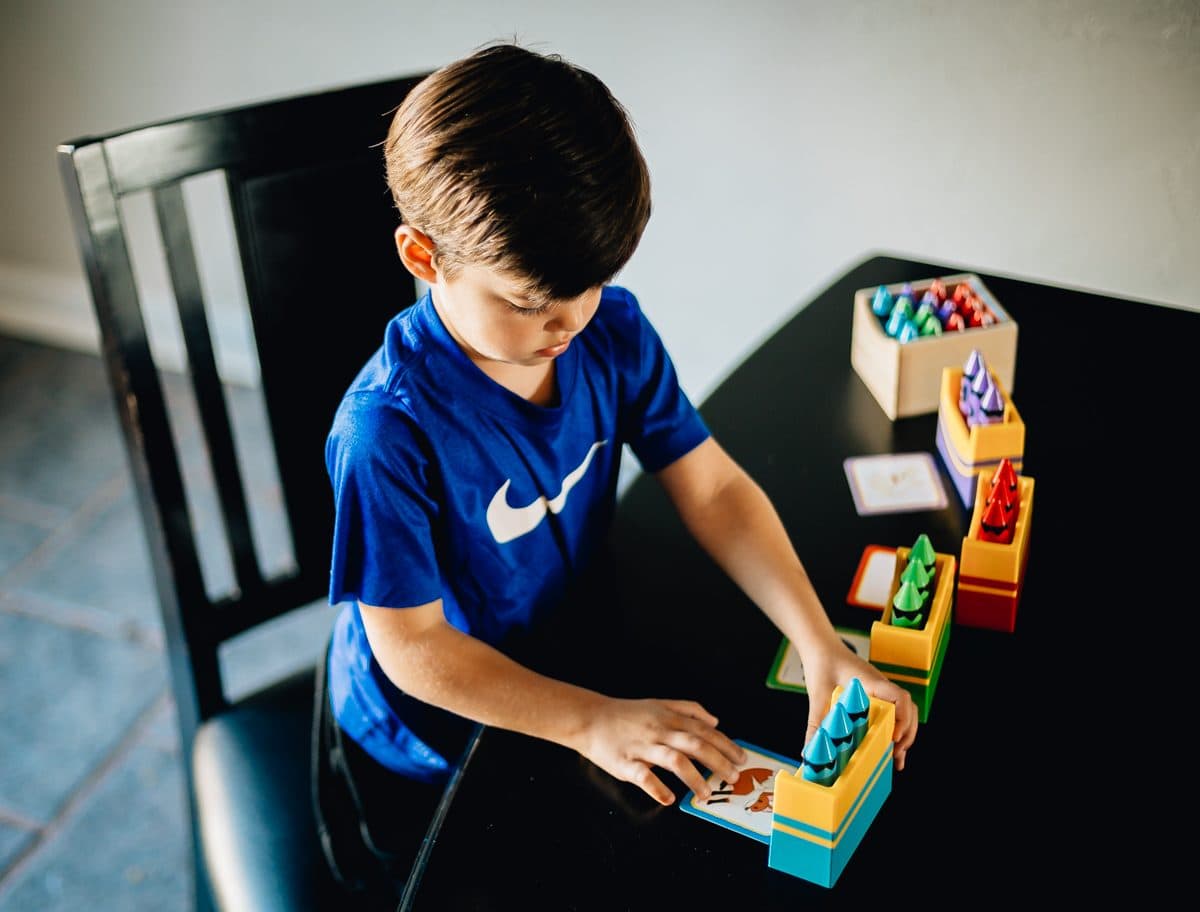
Letter Crayons Word Building Center: Perfect for at-home learning, the Letter Crayons Word Building Center is a self-checking lesson that will build early language skills along with boosting confidence and self-esteem because no adult help is required. Kids can choose a card that includes the word on one side and an image on the other and then grab the durable letter crayons to snap into the crayon box to spell the matching word. Little ones will feel accomplished when they are able to mix and match the crayons and cards, working quietly and successfully on their own.
SHOP:
Mix and Match Magnetic Families | Snap Dinos | Treehouse Imagination Builders | Pose and Play Kids | Nuts About Math! – Complete Set | Letter Crayons Word Building Center
EXPLORE AND CONNECT:
Lakeshore | Facebook |Instagram |Twitter |Youtube | Pinterest
Children learn through play, so turning your playroom into an at-home classroom this Spring/Summer is easy to do. With everything you need to set up an early childhood educational experience right in your own home, Lakeshore Learning is your one-stop shop for fun and educational activities sure to peak your child’s interest and instill a love of learning. From birth, education is at the forefront of all parent’s minds but it begins at home with engaged, interactive parents teaching children not necessarily the academic concepts themselves, but rather the value of education in a fun and exciting way. The most valuable thing we can give our children is our time and to truly instill a love for learning in their rapidly developing little minds.
WANT TO READ MORE?
Starting your child on the right track is instrumental to their future personal and academic success. Learn how to Encourage Education: Developing a Growth Mindset in Your Child this Summer.
